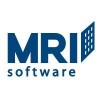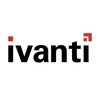Filter interviews by
TickerPlant Software Engineer Interview Questions and Answers
TickerPlant Software Engineer Interview Experiences
3 interviews found
(2 Questions)
- Q1. Explain Methods in java
- Q2. Explain oops in java
Interview Preparation Tips
Skills evaluated in this interview
I applied via Referral and was interviewed in Apr 2023. There were 2 interview rounds.

(5 Questions)
- Q1. What is MFC application?
- Ans.
MFC (Microsoft Foundation Class) application is a framework for building Windows-based applications using C++.
MFC provides classes for GUI components like windows, controls, and dialogs.
It simplifies the process of creating Windows applications by providing pre-built classes and functions.
MFC applications are typically developed using Visual Studio.
Examples of MFC applications include Microsoft Word and Visual Studio i...
- Q2. Difference between TCP and UDP
- Q3. What is mutex and atomic variable
- Ans.
Mutex is a synchronization mechanism used to control access to shared resources, while atomic variables ensure atomicity in operations.
Mutex is used to prevent multiple threads from accessing shared resources simultaneously
Atomic variables ensure that operations on the variable are indivisible and not interrupted by other threads
Mutexes are typically used in multithreaded programming to avoid race conditions
Atomic vari...
- Q4. Do you have an experience in multithreading
- Ans.
Yes, I have experience in multithreading.
Implemented multithreading in Java to improve performance of a web application
Used pthreads in C to create parallel processing for a data processing application
Utilized Python's threading module to handle concurrent tasks in a server application
- Q5. What is your skills set
Skills evaluated in this interview
I applied via Referral and was interviewed before Nov 2020. There were 3 interview rounds.
Interview Questionnaire
1 Question
- Q1. Basic oops concepts
Interview Preparation Tips
Top trending discussions






Interview questions from similar companies

I appeared for an interview in Mar 2021.
Interview Questionnaire
1 Question
- Q1. Oops, asp.net, MVC, design patterns
Interview Preparation Tips

I applied via LinkedIn and was interviewed before Dec 2023. There were 2 interview rounds.
They just gave me an assessment with a few questions to test my subject knowledge
(1 Question)
- Q1. They asked me all the general questions and a few technical questions
Interview Preparation Tips

I appeared for an interview in Nov 2024.
The aptitude test evaluates problem-solving, coding skills, and logical reasoning, offering a fair challenge to showcase technical expertise.
(2 Questions)
- Q1. How do you handle conflicts in a team project?
- Ans.
I address conflicts in team projects by promoting open communication, active listening, and seeking compromise.
Encourage open communication among team members to address conflicts early on
Practice active listening to understand all perspectives and concerns
Seek compromise and find common ground to resolve conflicts effectively
- Q2. What is the difference between an interface and an abstract class?
Interview Preparation Tips

I applied via Campus Placement and was interviewed in Sep 2022. There were 3 interview rounds.

25 questions of quants and logical and 10 questions of coding, some were debugging some were coding
(4 Questions)
- Q1. Discussion about my resume projects
- Q2. Return addition and subtraction of two numbers from the same function
- Ans.
A function that returns the addition and subtraction of two numbers.
Create a function that takes two numbers as input parameters.
Inside the function, calculate the sum of the two numbers and store it in a variable.
Calculate the difference of the two numbers and store it in another variable.
Return an array of strings containing the sum and difference.
- Q3. Print leaf nodes of binary tree
- Ans.
Print leaf nodes of binary tree
Traverse the tree recursively
If node is null, return
If node is leaf node, print it
Else, recursively traverse left and right subtrees
- Q4. What is the protocol used for communication over web pages
- Ans.
HTTP is the protocol used for communication over web pages.
HTTP stands for Hypertext Transfer Protocol
It is the foundation of data communication on the World Wide Web
HTTP uses a client-server model where the web browser acts as the client and sends requests to the web server
The web server responds with the requested data in the form of HTML, images, videos, etc.
Interview Preparation Tips
The interview was fairly simple they just want to know how good you are at thinking about solutions of a problem.
Skills evaluated in this interview

I applied via Walk-in and was interviewed in Apr 2024. There were 4 interview rounds.
So prepare good amout of aptitude , and try to solve at least 15 Questions
It was an Online coding test 2 questions were there. difficulty (Easy and Medium).
The third round was again an coding round but it was a pen and paper test , it was in offline mode they will tell you the center after you will complete 2nd round.
In pen and paper test there are 10 coding questions and from topics array , string , recursion , Bit manipulation , BST , Linked List. so you have to solve at least 6-7 questions.
(3 Questions)
- Q1. Questions on HTML, CSS
- Q2. Permutations in string (Can you Backtracking approach). Always try to explain your approach
- Ans.
Generate all permutations of a string using a backtracking approach.
Backtracking involves exploring all possible configurations and abandoning those that don't meet criteria.
Start with an empty string and build permutations by adding one character at a time.
Use a boolean array to track which characters are already included in the current permutation.
Example: For the string 'abc', the permutations are 'abc', 'acb', 'bac...
- Q3. Explain your Project?
- Ans.
Developed a web application for managing inventory and sales for a retail store.
Used HTML, CSS, and JavaScript for front-end development.
Implemented backend functionality using Node.js and MongoDB for database management.
Incorporated user authentication and authorization features for secure access.
Integrated payment gateway for online transactions.
Utilized responsive design for mobile compatibility.

Software Developer Interview Questions & Answers
Codingmart Technologiesposted on 26 Jun 2024
I applied via Campus Placement and was interviewed in May 2024. There were 2 interview rounds.
45 min apps and technical question
45 min coding round you can refer net for first 15 min

Software Developer Interview Questions & Answers
Codingmart Technologiesposted on 30 Jun 2025
I appeared for an interview before Jun 2024, where I was asked the following questions.
- Q1. 1st round is of Tech MCQ in all domains, its a bit moderate
- Q2. A Hard Leetcode Problem you can solve with reference
- Q3. Tech Hr with mainly your resume and DSA
- Q4. General HR and Culture fit round
Interview Preparation Tips
TickerPlant Interview FAQs
Tell us how to improve this page.
Interview Questions for Popular Designations
- Software Developer Interview Questions
- Senior Software Engineer Interview Questions
- Senior Engineer Interview Questions
- System Engineer Interview Questions
- Associate Software Engineer Interview Questions
- Project Engineer Interview Questions
- Lead Engineer Interview Questions
- Software Development Engineer Interview Questions
- Show more
Overall Interview Experience Rating
based on 2 interview experiences
Difficulty level
Duration
Software Engineer Interview Questions from Similar Companies
TickerPlant Software Engineer Reviews and Ratings
based on 8 reviews
Rating in categories
|
Software Engineer
40
salaries
| ₹3.5 L/yr - ₹7 L/yr |
|
Senior Software Engineer
19
salaries
| ₹5.9 L/yr - ₹12.5 L/yr |
|
Executive
13
salaries
| ₹1.8 L/yr - ₹4.2 L/yr |
|
Software Developer
11
salaries
| ₹3.5 L/yr - ₹6.5 L/yr |
|
Manager
10
salaries
| ₹9.8 L/yr - ₹13.4 L/yr |

Apex CoVantage

Avontix

Teleindia Networks

Starmark Software
- Home >
- Interviews >
- TickerPlant Interview Questions













